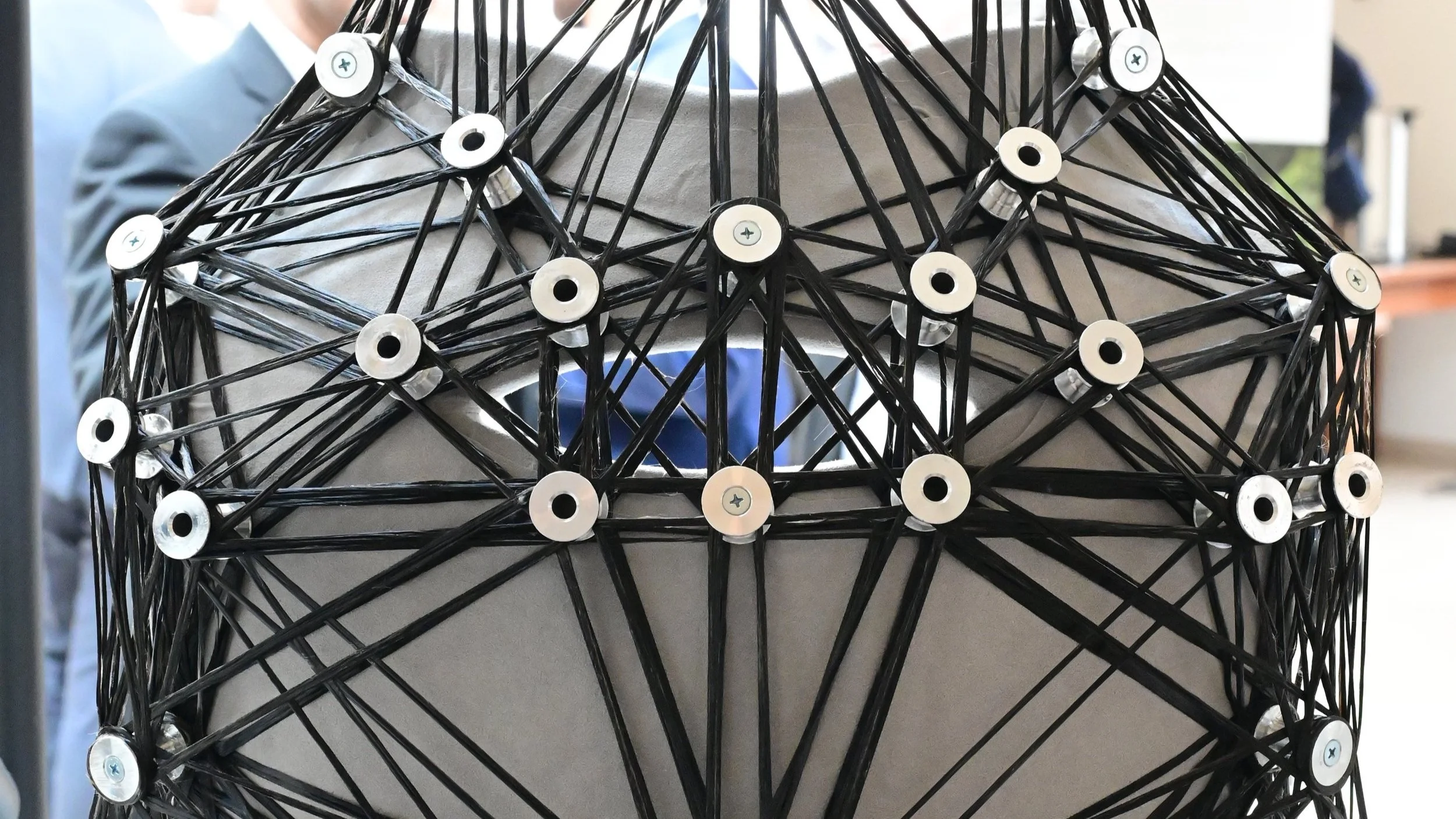WHAT WILL YOU DREAM WITH?
FLAX FIBER
-
This plant-based fiber is a sustainable alternative to composites. This fiber is biodegradable, cost-effective, has good mechanical properties, high specific stiffness, easy processability, and low density.
-
Flax fiber requires between 2 and 5 times less energy to produce per unit weight than glass fiber, and, in fact, carbon emissions from its production are often claimed to be negative, owing to the carbon capture during its growth.
Also, Gradel’s Flax fiber processing is sustainable by utilizing the cut off from the product which is less than 1% compared to other techniques.
-
Flex fiber will be perfect to use for resistant parts and light parts. It is one of the most resistant natural fibers in the world of composites. It is already used a lot in the automotive sector. You will appreciate its cost-effectiveness and environmental friendly characteristic.
-
Flex fiber is recyclable, biodegradable, and sustainable for the ecology, the economy, and society.
-
Very flexible and resistant
Stronger than other natural plant-based fibers
High weight reduction
Can replace a lot of plastic/aluminum parts in a more efficient way
100% eco-friendly
BASALT FIBER
-
The basalt fiber is the result of the basalt rock's physical melting at 1400°C.
Due to the fact that the raw material for the production of stone wool is a rock formation, thermal insulation products meet the requirements of fire safety and can be used as fire insulation and fire protection. The limit of sintering temperature of basalt fibers is 1000°C
-
It starts with basalt mining, then the stone is melting at 1400 degrees. We obtain a primary thread which is assembled into roving.
-
Today Basalt is known to be a great material for construction and is used to remove carbon dioxide. At GRADEL, we want to push it further. Basalt can also replace your metal parts and be a very resistant and light material. Today at Gradel, we can produce all types of parts in basalt for your needs.
-
Basalt has very high durability when the part is broken or came to the end of life. The most common way is to incinerate basalt between 400-600°C and retrieve the basalt.
Note that basalt is biodegradable.
-
Basalt fiber production is ecologically clean: infinite resource
Basalt is a non-residual technology
Minimum CO2 emission among high-temperature technology
2 times stronger than steel and 5 times lighter
Resistant to alkali, rust, and acids
RESPONSIBLE CARBON
-
Carbon fiber or graphite fibers, this material has several advantages including high stiffness, high tensile strength, low weight, high chemical resistance, high-temperature tolerance, and low thermal expansion.
-
The process for making carbon fibers is part chemical and part mechanical. The precursor is drawn into long strands or fibers and then heated to a very high temperature without allowing it to come in contact with oxygen. Without oxygen, the fiber cannot burn. Instead, the high temperature causes the atoms in the fiber to vibrate violently until most of the non-carbon atoms are expelled. This process is called carbonization and leaves a fiber composed of long, tightly interlocked chains of carbon atoms with only a few non-carbon atoms remaining.
-
We know carbon fibre is not a sustainable material, but the way we implement it and use it is sustainable. For example in an aircraft, 96% of the CO2 comes from its use. Then, this 96% is reduced when we use our technology which is lighter and saves energy on fuel consumption.
-
Yes, carbon can be recycled, the most common way is to heat it between 400-600°C, to separate the carbon fiber from the resin. The resin is basically burned off, we call this process: Pyrolysis
Of course, the carbon loses some of its features: resistance, stiffness… That’s why we mostly produce hydrocarbon thanks to this carbon recycled.
-
High stiffness
High Tensile strength
Very low weight
High chemical resistance
High-temperature tolerance with low thermal expansion
Very resistant

FLAX FIBER
This plant based fiber is a sustainable alternative in composites. This fiber is biodegradable, cost effective and have good mechanical properties, high specific stiffness, easy processability, low density.

BASALT FIBER
Today Basalt is known to be a great material for construction and is used to remove carbon dioxide. At GRADEL, we want to push it further. Basalt can also replace your metal parts and be a very resistant and light material. Today at Gradel, we can produce all types of parts in basalt for your needs.

responsible carbon
We know carbon fibre is not a sustainable material, but the way we implement it and use it is sustainable. For example in an aircraft, 96% of the CO2 comes from its use. Then, this 96% is reduced when we use our technology which is lighter and saves energy on fuel consumption.






